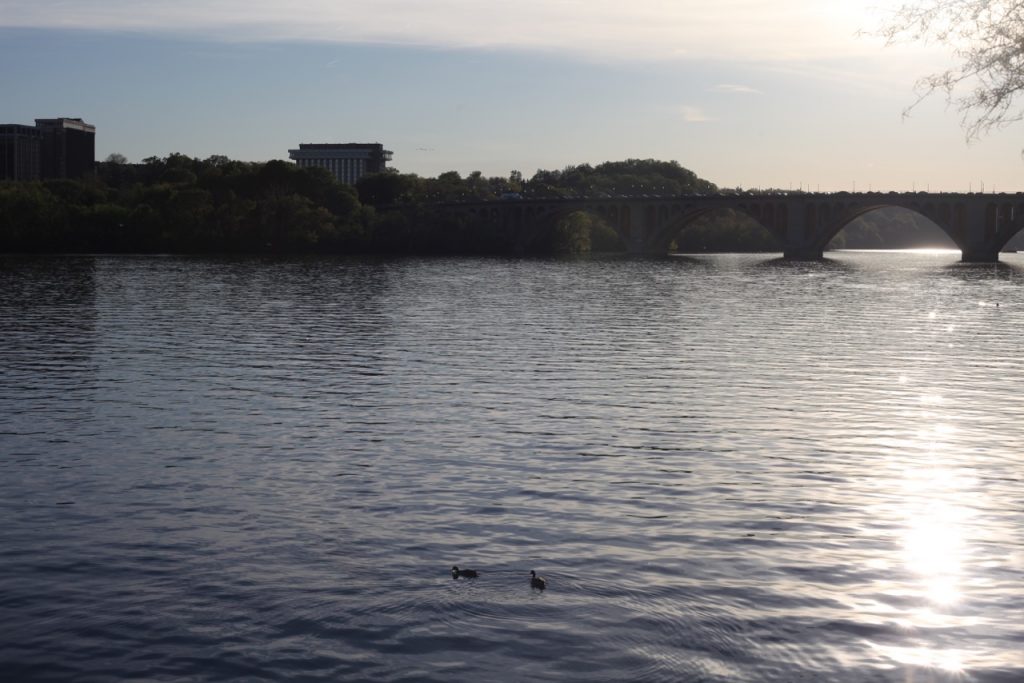There are stark differences between the Potomac River and the Anacostia River. The first, bordering the south section of our campus, is a source of pride for its community. In the warmer months, its waters are littered with boats of all sizes, its banks occupied by patrons wishing the day away. We, at Georgetown, even refer to our school as its “lovely daughter” when singing our “Alma Mater.”

Photo: Brooke Dudek
The same pride and ownership have not been widely bestowed on the Anacostia River, which has, at times, been labeled “D.C.’s forgotten river.” Recent efforts to clean the waters have been stymied by ongoing toxic pollution and by the marginalization of the community along its borders.
The Potomac and the Anacostia have faced many of the same problems due to their location in our nation’s capital. For years, the direct pollution into both rivers was staggering. In addition, natural events, like extreme weather, have made stormwater runoff and sewage overflow increasingly pressing concerns.
In the Potomac, these problems have largely been met with solutions. A special drive and governance structure, begun in the ‘60s with the aim of cleaning the river, has been sustained through today. Though this river still faces challenges relating to pollution, it is certainly in much better shape than it could have been.
The state of the Anacostia River is proof of this. It never received the same treatment as the Potomac, and thus failed to see similar progress in its levels of pollution. As Uwe Brandes, the founding Executive Director of the Masters Program in Urban and Regional Planning at Georgetown, puts it, the consequence is that today, working to clean up the Anacostia means “combatting an accumulation of impacts and inequality in infrastructure.”
This inequality is a matter of environmental justice, a concept often given lip service, but not widely understood. The Anacostia River’s current state is the product of unjust systemic conditions within our community. In this case, and in many others, the environmental problems in large part arise from discrimination based on race and class. The neighborhood surrounding the Anacostia is largely poor and black. The neighborhood surrounding the Potomac is not.
The term ‘environmental justice’ has a very specific meaning, yet it is sometimes applied incorrectly by well-intentioned individuals or institutions. For example, in 2012, the term was used as a subheading in a University news post regarding the launch of the Environment Initiative, despite the fact that the text of the section had no connection to the fundamental ideas of environmental justice. While the appropriation of the term is probably not meant to do harm, it dilutes the impact of the concept, especially where it is most apt.
As such, this Editorial Board urges Georgetown students to engage critically with the idea of environmental justice, as it exists in our campus, local, and national community. This is particularly important for us as temporary members of the D.C. community who will not experience much of the future environmental cost of the pollution we create in our time here. Ultimately, our ability to manage and address this cost is predicated on our ability to recognize our fundamental kinship with those affected by our actions, and acknowledge the unfair, unequal distribution of environmental burdens as a problem in and of itself. But until we are able to do this, we have no right to use the term in our public relations dispatches, no matter how good our intentions may be.







